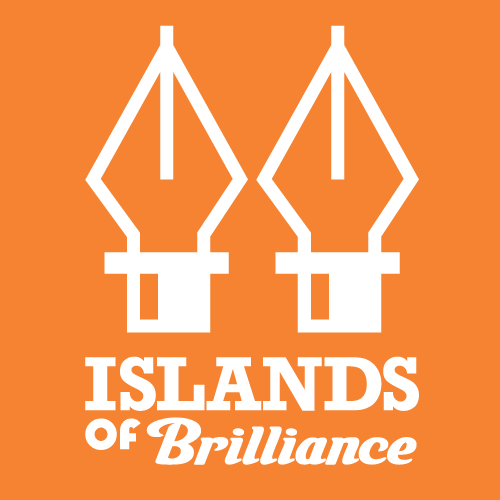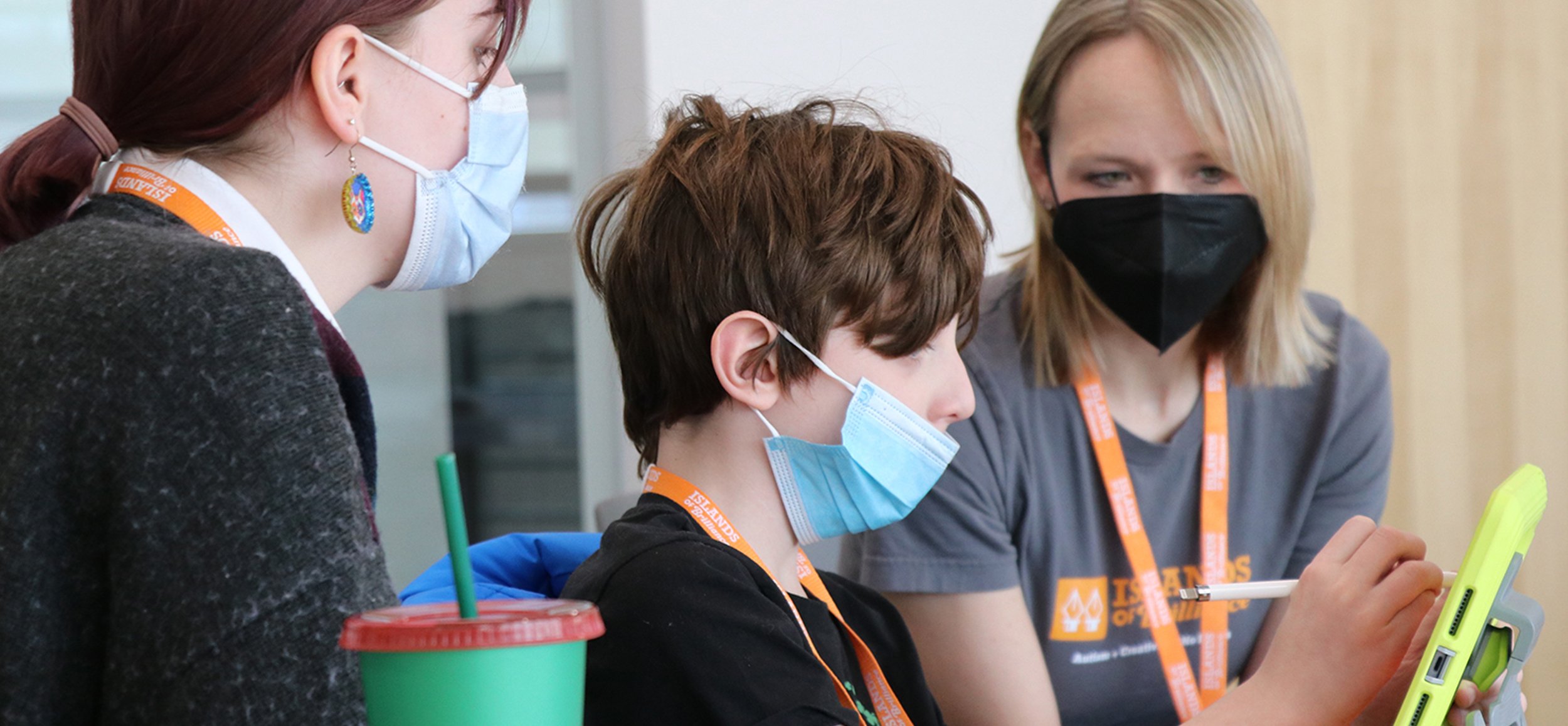2022 Children's Long-Term Support (CLTS) Program Updates
We have some exciting news to share! There have been some major updates to the Children's Long-Term Support (CLTS) Program. And we have some more wonderful news for you, our very own Margaret Fairbanks, Chief Education Officer, has created a special “cheat sheet” to help you understand the new services. Even better yet, she also coded it to show in orange where Islands of Brilliance (IOB) aligns with the CLTS Waiver Program!
Of course, you can also enjoy a video of the entire provider teleconference, or if you prefer to review all 203 pages of the Medicaid Home and Community-Based Services (HCBS) Waiver Manual for the CLTS Waiver Program (PDF).
2022 CLTS Updates:
Please note, we have put elements of the CLTS Updates that overlap with IOB offerings in bold italic.
Discovery and Career Planning Services
IOB programs that meet this criteria: Digital Academy and aspects of Foundation Workshops
Discovery and career planning services provide learning and work experiences where the participant can develop general, non-job-task-specific strengths and skills that contribute to employability in paid employment in integrated community settings. Discovery and career planning (DCP) is based on the belief that all participants can work when given the opportunity, training, and supports that build on a participant’s strengths, abilities and interests.
Discovery and Career Planning services include the following:
Exploring employment goals and interest to identify a career direction;
Community-based formal or informal situational assessments;
Task analysis activities;
Skills training/mentoring, work trials, apprenticeships, internships, and volunteer experiences;
Training in communication with supervisors, co-workers and customers; generally accepted workplace conduct and attire; ability to follow directions; ability to attend to tasks; workplace problem-solving skills and strategies; general workplace safety and other skills as identified through the person-centered planning process;
Broad career exploration and self-discovery resulting in targeted employment opportunities including activities, such as job shadowing, information interviews and other integrated worksite based opportunities;
Interviewing, video resumes and other job-seeking activities;
Transitioning the participant into employment supports for individualized competitive integrated employment or self-employment
When assisting a participant who is already employed, activities to support the participant in explore other careers or opportunities.
Career exploration and career skill-building activities, workshops, lessons, and seminars
Health & Wellness
IOB programs that meet this criteria: Brilliant Breakfast Club in-person and virtual, aspects of Digital Academy, and some Sandbox
Health and wellness services maintain or improve the health, wellbeing, socialization, or inclusion of the participant with their family and peers in the community.
Health and wellness services support the child’s inclusion with the family and peers in health and wellness activities within their community. Health and wellness services focus on healthy habits thereby preventing or delaying higher cost institutional care.
Healthy lifestyles: Examples may include assistance with issues regarding living with a disability and having a healthy lifestyle, such as nutrition, physical activity, and sensory regulation.
Non-traditional/alternative medicine and wellness: Examples may include yoga, meditation, mindfulness, sound healing, Traditional African Based Holistic Services, Ayurveda, Chinese or Oriental medicine, Reiki, Tai Chi, Native American healers, and spiritual counseling.
Sexuality education: Sexuality learning objectives may include positive self-image, communication skills, reproductive anatomy, conception and fetal development, safe sex, and health awareness. This service includes education on assertiveness about setting boundaries and reporting violations, expressing physical affection in a manner that is appropriate, and making informed choices about the relationships in the child’s or youth’s life.
Parenting training for participants Services may include training adapted for participants who are parents that may consist of in-home visits, an assessment of parenting needs and goals, as well as education and support in 1:1 or group settings.
Family/Unpaid Caregiver Supports and Services
IOB doesn’t do this yet, but we are hoping to develop offerings in 2023.
Family/Unpaid Caregiver Supports and Services provide education, training, and support to an unpaid caregiver of a participant that increases confidence, stamina, and empowerment to support and care for the participant. An unpaid caregiver is any person, family member, neighbor, friend, companion, or co-worker who provides uncompensated care, training, guidance, companionship or support to the waiver participant.
This service may help an unpaid caregiver to:
Understand the disability of the participant
Achieve greater competence and confidence in providing support
Develop and access community and other resources and supports
Develop or enhance key parenting strategies
Increase methods for coping and learn techniques to manage challenges.
Training, instruction, or support provided in a participant’s home, community, or other appropriate locations
Resource materials
Online training
Support groups
Participant and Family Directed Goods and Services
OB programs that meet this criteria: aspects of our Brilliant Breakfast Club in-person and virtual, aspects of Digital Academy, and some areas of our Foundation Workshops
Participant and family directed goods and services are services, supports, supplies or goods that address or enhance the participant’s opportunity to meet a long-term support outcome, but are not otherwise provided through another CLTS Waiver Program service or the Medicaid state plan.
Promote inclusion in the community
Promote the independence of the participant
Fulfill a medical, social, or functional need (based on unique cultural approaches) or
Increase the participant’s safety in the home environment.
The outcomes of the item or service may include:
Maintaining the participant’s ability to remain in the community
Enhancing the participant’s community inclusion and family involvement
Developing or maintaining the participant’s personal, social, physical, or work-related skills
Increase the participant’s independence.
Virtual Equipment and Supports
Virtual equipment and supports allow a participant to access other CLTS Waiver Program services that are delivered remotely. This service includes the initial purchase of items or services a participant needs to participate in the remote delivery of other CLTS Waiver Program services. Items and services covered under the virtual equipment and supports service include but are not limited to the following:
Electronic devices (hardware) such as computers (desk top, lap top, tablets, smart phone, etc.), microphones, monitors, microphones, earphones, cameras, modems, routers, and hot spots
Warranties, extended warranties, and protection plans for items covered under this service
Computer programs and applications (software)
Professional set-up, installation, and routine maintenance of items covered under this service
Renamed services:
Consumer Education and Training is now Empowerment and self-determination: supports help the participant acquire skills to exercise control and responsibility over their other supportive services.
Exercising control and responsibility over supportive services helps the participant and their family build an interdependent care network within their community and promotes self determination. This service includes education, training, and events that help the participant and family develop self-advocacy skills, exercise civil rights, and acquire the skills needed to manage their supportive services. Education and training may be provided for the participant and/or their parent(s), unpaid caregiver(s), and/or legal representative(s).


